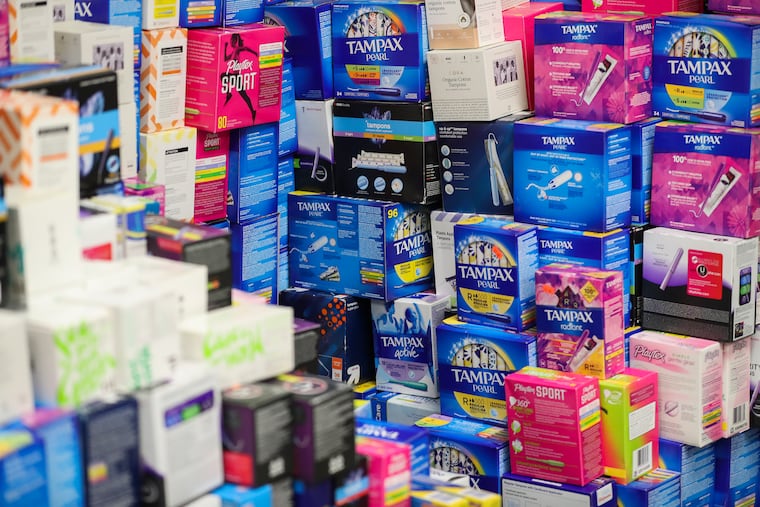For teens with painful periods, menstrual suppression is worth considering l Expert Opinion
As adolescent medical providers, we consider the menstrual period to be the fifth vital sign.

As adolescent medical providers, we consider the menstrual period to be the fifth vital sign — right up there with respiratory rate, pulse, blood pressure, and temperature. It’s highly sensitive — easily derailed by things like illness, weight changes, certain medications, and final exams (STRESS!). The menstrual cycle is usually monthly and happens because hormones from the brain stimulate hormones from the ovaries to thicken the lining of the uterus in preparation for a possible pregnancy. If no pregnancy occurs, the lining breaks down and flows out the vagina for 2-7 days — the period. Wasting no time, the Brain-Ovaries-Uterus Team starts thickening the lining again, and so the cycle of periods goes on and on ….
For some teenagers, menstrual periods are extremely irregular, painful, and can even cause them to miss school. That’s when we recommend safe and reversible menstrual suppression. Wait, what!?! That’s right — it’s not necessary to have a period! Truth or myth: It’s not safe to go without a period for a long time. Myth! While girls need to get their first period to indicate that the Brain-Ovaries-Uterus Team is a coordinated team, it’s not necessary to keep having them. Menstrual suppression can reduce or stop menstrual periods. Complete absence of periods does not always occur … but that’s our goal. Menstrual suppression also does not affect girls’ ability to have babies in the future … if that’s their goal.
Who should consider menstrual suppression? Any teenager can, but especially those with:
Bleeding disorders like von Willebrand’s disease.
Anemia from heavy or prolonged periods.
Gynecologic conditions like endometriosis.
Painful menstrual cramps that cause them to miss school.
Gender identities who do not wish to have periods.
Disabilities that cause them to be unable to manage their periods.
Medical problems that worsen during periods.
Medicines used to suppress the period are like the body’s own hormones. These medicines stabilize or thin the lining of the uterus which stops or reduces periods. They come in pills, patches, vaginal rings, injections, and intrauterine devices (IUDs). Some contain progestin and estrogen. With certain medical conditions, like liver disease or migraine headaches with aura, estrogen is not recommended. No worries — progestin-only options are available for menstrual suppression too!
Hormone pills are taken by mouth:
Combined pills contain both estrogen and progestin and are used continuously or with occasional breaks for fewer periods.
The “mini pill” is a progestin-only pill. If taken at the same time each day, periods lessen and sometimes stop.
Norethindrone acetate is also a progestin-only pill and can stop the period completely.
For some, taking a pill daily may be challenging; hence, the “patch.” The patch contains both estrogen and progestin and is changed every week. Patches can be used continuously.
For some, changing a patch weekly may still be tough; hence, the “ring.” The vaginal ring is about 2 inches in diameter, flexible, and inserted into the vagina. It contains both estrogen and progestin. The ring can be left in for four weeks and replaced continuously.
For some, inserting a vaginal ring monthly may still be difficult; hence, “depo” (medroxyprogesterone) injections. Depo is progestin-only and is given in the office every three months. Approximately 90% have no bleeding by the fourth dose.
For some, getting a depo injection every three months may not be ideal either; hence, the IUD. The IUD is a small T-shaped device that is inserted into the uterus. The hormonal IUD contains progestin-only and lasts up to seven years. The IUD is safe for all teenagers and, like all the above methods, does not affect future fertility. By two years, 75% have no significant bleeding. The IUD can be inserted as an office procedure or in the operating room under sedation.
Bottom line: While many of the treatments mentioned can be used for birth control, note that these medicines are often used for non-contraceptive reasons like menstrual suppression. All are safe and reversible. For many teens, menstrual suppression can greatly improve their quality of life. Teens do not have to have a “problem” to suppress their periods — they may just prefer not to have them. Period.
Hayley Goldner is a third-year pediatric resident, and Rima Himelstein is an adolescent medicine physician at the Nemours Children’s Hospital, Delaware.